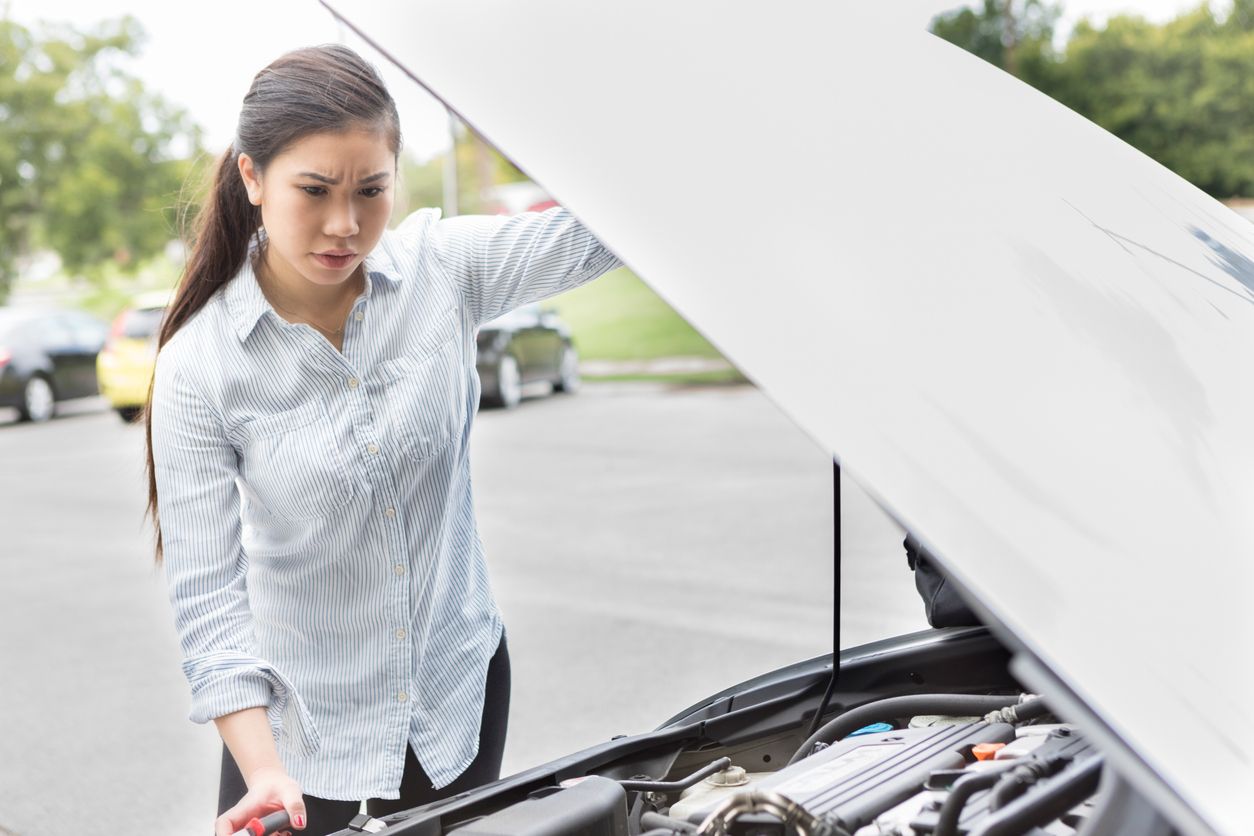You lift the hood, expecting to top off the washer fluid or check your oil. Then you spot it: Your car battery is bulging, puffing out at the sides like it’s had a little too much to eat. A swollen car battery is often a sign that something’s wrong. And yes, it could be dangerous if ignored.
Here's what causes a battery to swell and what to do next.
What Does a Swollen or Bulging Car Battery Look Like?
If you’ve noticed your car battery swelling or bloating, you’re right to be concerned. A bloated car battery is often a sign that it's failing, and it often looks puffier than normal, especially on the top or sides, and may seem like the casing is expanding or pushing at the seams. A swollen car battery is also often accompanied by a strong sulfur or rotten egg smell.
Other common signs to watch for are:
- Visible leaks
- Unusual odors
- A battery that no longer fits easily into its compartment
- A noticeable drop in your car’s power or performance
- Corrosion forming on the battery terminals
- Trouble getting your vehicle started—especially on cold mornings.
Regardless, if your battery looks deformed, it’s time to take action, not wait and see if it will get better or lead to a bigger problem.
What Causes a Swollen Battery?
This issue is caused by pressure building up inside your battery’s casing, and it’s most often a sign that the internal components are reacting in ways they shouldn’t. Pressure build-up can also be caused by several different issues and may occur in both traditional lead-acid batteries and more modern lithium-ion battery designs.
Here are the most common reasons drivers experience a swollen battery, and why it’s not something to ignore.
Overcharging
If your car’s charging system is pushing too much voltage into the battery, it can lead to overheating. This overcharging is often caused by not registering a new battery replacement in vehicles with a battery management system (BMS), a malfunctioning alternator, or the improper use of battery chargers. In both cases, the excess voltage causes an accelerated chemical reaction inside the battery, releasing gases that have nowhere to go. As pressure builds, the battery casing can start to swell.
High Temperatures
Car batteries don’t handle high temperatures well. Excessive heat, whether from your engine, a scorching summer, or both, can cause rapid internal changes that damage the battery’s structure. These conditions are especially tough on a battery’s health, often shortening its life or leading to swelling.
Internal Failure and Age
Over time, internal short circuits or deteriorated internal components can cause imbalances that lead to battery swelling. Even the best battery management practices can’t indefinitely prevent battery failure. A common issue with aging batteries, especially those more than 3 to 5 years old, is that they stop being able to hold a charge effectively. When that happens, it’s usually time to replace the battery.
Manufacturing Defects
In rare cases, manufacturing defects can cause the battery to fail prematurely. These defects might manifest as battery swelling, inconsistent performance, or the inability to start your car reliably. If your battery is relatively new and showing any of these signs, don’t hesitate to seek professional help from Tires Plus to determine the cause.
Is It Safe to Drive With a Swollen Battery?
It’s not safe to drive with a swollen battery. A battery that’s bulging or bloated is unstable and poses a potential fire hazard. So, what does a bulging car battery mean? It means you are facing the risk of:
- Leaking acid: Battery acid can escape and corrode nearby parts.
- Losing power: A failing battery may cause electrical issues or make it harder to start your car.
- Battery Rupturing: In extreme cases, pressure buildup can rupture the battery’s casing and release toxic chemicals. So, if you’re wondering, “Will a swollen battery explode?” The answer is, “It could and it might.” It’s not a risk worth taking.
Whether you're dealing with a swollen lithium-ion or lead-acid battery, driving on it could do more harm than good to your vehicle and to your safety.
What Should You Do If Your Battery Is Swollen?
If your battery case is visibly swollen, do not try to remove the battery yourself. A swollen battery can be pressurized and unstable. Mishandling it could cause leaks, burns, or worse.
Instead:
- Avoid starting the car until you’ve had the battery looked at.
- Visit a Tires Plus location for a professional inspection of your car battery and charging system.
- Let our team diagnose the issue and recommend the next best step.
Our technicians are trained to safely and efficiently deal with a swollen battery. We’ll also check surrounding components to ensure your entire system is working as it should.
Don’t Wait! Let’s Fix That Battery Before It Fails.
Notice your battery case swelling or bulging? That’s a big warning sign, and our pros at Tires Plus are ready to help. Whether you’re replacing a worn-out lead-acid battery or upgrading your vehicle’s battery, our technicians can help you walk you through the steps to be sure you choose the right type of battery for your vehicle and driving needs.
Schedule your appointment online or swing by your nearest Tires Plus today.


